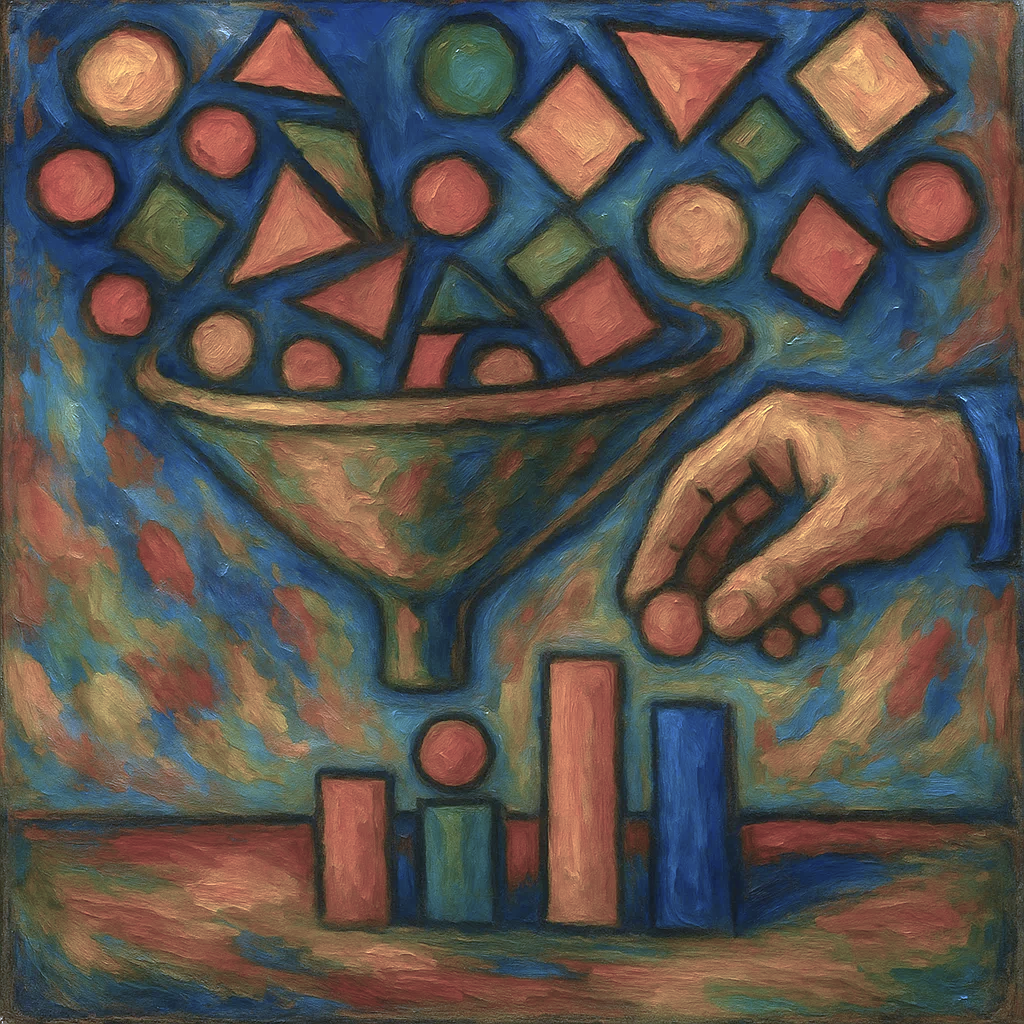Budgets reveal: So little is passed on to local partners
We have looked at the budgets of Norad's twelve largest partners in Norway. The proportion transferred to local partners is disappointingly low.

Ki-generated illustration from Sora
Main moments
When Langsikt published the note From words to action on locally led development in Norwegian civil society support, sparked it debate. SOS Children's Villages warned that the localisation agenda must be taken seriously. Save the Children and Church Emergency Services recognised that too small a proportion of their funds go directly to local partners.
In the memo, we looked at the budgets of four of Norad's Norwegian partners. Now we have analyzed the budgets of twelve of Norad's largest partners. The result is clear: the share transferred to local partners is consistently low, despite wide variations. For the majority, less than half go directly to local partners.
Money and power must be shifted to the south
Digni has a posts saluted us for the memo, but also pointed out where they disagree. We are pleased that we share an important starting point: Local ownership is essential for assistance to be effective, equitable and sustainable. At the same time, we believe Digni misunderstands some premises and espouses views that we have not put forward.
Digni makes a point out of the fact that so-called intermediaries can have a value. We do not doubt this, and have never said that “removing Norwegian intermediaries” is an end in itself. Our goal is more and better locally led development. For that to happen, however, more decisions, more power and a greater share of resources will have to be transferred to local actors. In the current system, Norwegian organizations are intermediaries for almost all the funds to civil society (92 percent!). Despite examples of Norwegian organizations contributing value, it is obvious that some downscaling of these organizations needs to be done.
The very low proportion of funds going to local partners through Norwegian organisations illustrates this. Despite the fine words, few organizations have given up enough power and resources to achieve locally led development in practice.
Analysis of Norad's plus partners
We have now reviewed twelve organizations' applications to Norad to become a plus partner. The review shows that seven organisations, the majority, transfer less than half of their funds to local partners. The best in class transfers 86% to their local partners, while one organization transfers as little as 6%. Can this be defended in 2025?
In its answers to written questions from Parliamentary Representative Sigrid Heiberg (MDG), following up on our note, Minister for Development Aukrust writes that: “A prerequisite for Norwegian civil society organisations to receive support is that they cooperate with local organisations in partner countries. Before allocating funds, it is assessed to what extent a proposed project is locally rooted.”
All of the above figures are from the organizations' applications to Norad, so these were known to Norad at the time of award.
Admittedly, transfers to local partners are not the only way to measure the degree of locally led development, but it is an important indication of where decision-making power lies.

Professionalization of organizations
Digni argues that we overlook the risk that more Norwegian funds may end up with capital-based and professional “donor-language” organisations in developing countries. That doesn't add up. The risk of aid going to professional “elite structures” is real -- but it applies both there and here. Norwegian organizations are also not immune to the concentration of power and professionalization that creates distance from the grassroots. Digni is right that not all local organisations are fit to promote sustainable development, but let it be said: the same applies to Norwegian organisations.
In our note, we refer to extensive documentation from OECD, ODI, CGD and Share Trust, among others. The common denominator is clear: When local actors gain real decision-making power and control over resources, accuracy, relevance and cost-effectiveness increase. This does not mean that local players are always the best, but the current system often prevents the good ones from growing. Norwegian organisations — with their capacity and position — also have a responsibility to make room for it.
That's why we're challenging today's partnership models. Many Norwegian organizations refer to the cooperation as “equal”. But as our analysis shows, they often sit with the control of the resources, the ownership and the power of definition. Local partners become project executors — not strategic partners. Then the partnership becomes asymmetrical, not equal.
Do we dare to give up power?
Real change requires us to speak the truth about power. Locally led development is not just about sharing -- it's about giving up power: control over resources, power of definition, and the right to set the premises for what constitutes “good assistance.” If we are to succeed in locally led development, we need to do more than talk about partnerships. We must dare to change how aid is actually channelled and managed — also from Norway.
We therefore invite both Digni and other organizations — including the twelve we have examined in detail — to take the next step: moving from principles to practice, and from words to action. How can we in Norway — through Norad, policies, regulations and organizational practices — transfer power in real, not just language?
More from Langsikt

Input to the strategy for Norway's cooperation with the World Bank
Norway should see its cooperation with the World Bank, particularly IDA, as more than an aid tool - it should be part of our long-term strategy to contribute to a stable and resilient world with less inequality and less poverty. Here are nine inputs on how.

Norwegian aid can accomplish much more if it is prioritized correctly. Here are suggestions on how
Below are two proposals for structural measures in the aid budget, and then two concrete budget amendments that can save free up room for action for new initiatives (a total of NOK 1 billion in 2026).

Input to Development Minister in Light of Global Aid Cuts
Global aid cuts must have consequences for Norwegian priorities.

The death of the aid percentage: An analysis of what Norwegian aid goes to
Never before has the share of Norwegian aid going to poverty reduction and development been lower.